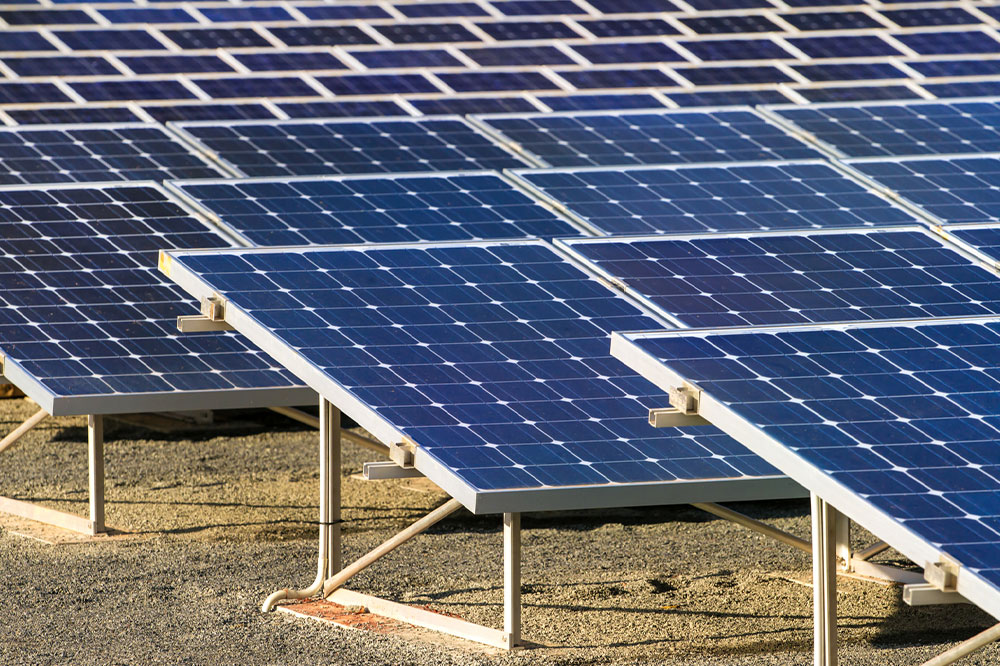Key Details to Know About Solar Batteries
As climate change looms large on the horizon, renewable energy sources seem more vital than ever now. There’s no greater natural energy source out there than the sun, which is why solar batteries are progressively gaining popularity today, both in industrial and household applications around the world. However, these batteries are still a relatively unknown entity to a wider global audience. To quell readers’ curiosity regarding them, here are certain key details about solar batteries:
What is the price of solar batteries?
At the moment, solar batteries are expensive compared to conventional ones, a trend that is likely to change in the near future.

Currently, someone looking to buy solar batteries will be looking at a bill of up to $20,000. This includes the base solar battery prices, the solar battery backup, and the installation costs of the entire unit. For buyers looking to make solar battery cost comparisons, the price of a Tesla Powerall starts at $8,500, whereas the other ones, such as the Generac PWRcell ($9,999), the Sonnen eco ($10,000), the LG Chem RESU ($9,500 – $13,000 with installation), and the Panasonic Evervolt ($15,000 – $20,000 with installation) are also priced in the same range.
What are the benefits of solar batteries?
There are countless benefits of solar batteries, some of which are:
- Lowered electricity costs
The high price of solar batteries may put many buyers off when they first consider purchasing them. However, the high solar battery prices are offset by the sheer savings it brings from an electric bill perspective. The money saved by using this depends on the type of net metering one chooses. Net metering involves receiving credit for all the excess solar power one sends to the electricity grid. This specific benefit makes financial sense for long-term solar battery users. - Low maintenance and hassle-free usage
Once installed, solar battery systems do not require much maintenance, and the power backup and usage function works seamlessly during evenings and nights. Unlike conventional backup generators, solar batteries do not need “refueling” as they do so on their own using their own stored solar energy. - Reduced carbon footprint
This one is arguably the most important of all benefits. In an age when non-renewable energy sources are fast depleting, and global carbon emissions are constantly rising, solar batteries offer the irresistible combination of limitless power and a dramatically reduced carbon footprint. - Energy independence
Power outages are quite common in many regions for various reasons. In such areas, people use generators and other resources that provide backup power in case of another outage. Solar battery, since it is regenerative in nature, does not need a backup. This facet of solar batteries is useful to keep one’s appliances and batteries running even when the power has gone out in the entire neighborhood.
In short, energy independence is the complete electrical immunity solar batteries provide households or offices during power outages. - Quiet backup power
Most fuel-based generators make a lot of noise during operation. Additionally, these generators are massive air pollutants as well. Fortunately, solar batteries do the opposite- they do not make noise while being used and do not add to the pollution. - Tax credits and rebates
Due to a solar battery’s environmental sustainability credentials, governments around the world offer special tax rebates and credits to people and businesses that use solar energy. These benefits, commonly known as solar tax credits, encourage people to opt for solar batteries for daily energy needs.
How do solar batteries work?
The basic premise of solar batteries is well-known: the conversion of sun rays into energy. Essentially, solar batteries do not work in isolation. These batteries are part of a set-up in which solar energy is captured and stored with the help of complex solar panel systems. People can install solar batteries in their homes, workplaces, or an industrial environment based on their energy usage.
Here’s how solar batteries work:
- The solar panels fitted on one’s roof capture the sun’s rays.
- The panels convert these trapped rays into electricity (direct current or DC).
- The DC is sent through an inverter to generate Alternating current (AC) electricity, ultimately used to power home appliances, workplace gadgets, and industrial equipment.
- The excessive energy not used by appliances is used to charge the batteries.
- When the sun is not out during the evenings, the appliances are powered by the energy stored in the battery.
Which factors should one consider while buying solar batteries?
Here are some key factors to look for when buying solar batteries:
- Capacity
This involves the amount of energy a battery can store. Based on one’s requirements, buyers can purchase batteries of different capacities. Understandably, solar battery prices keep rising the higher one goes in the capacity spectrum. Normally, moderate-sized batteries are sufficient for most domestic energy-driven work. - Warranty
Solar batteries are still a relatively new entity, so reliability can be a bit iffy at various points. To offset any issues caused by reliability-related aspects, one needs to ensure that a warranty is attached to their purchase. A manufacturer’s warranty and return policy are key aspects for buyers in case their battery does not perform adequately or malfunctions during or after installation or operation. - Manufacturer
One must buy solar batteries from trusted, reputed brands. These brands have a higher quality threshold for their products, and that can ensure that their solar batteries are more reliable than ones made by newer, more obscure brands.

